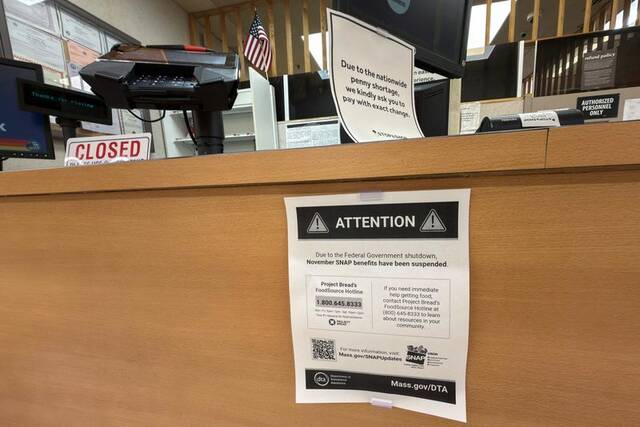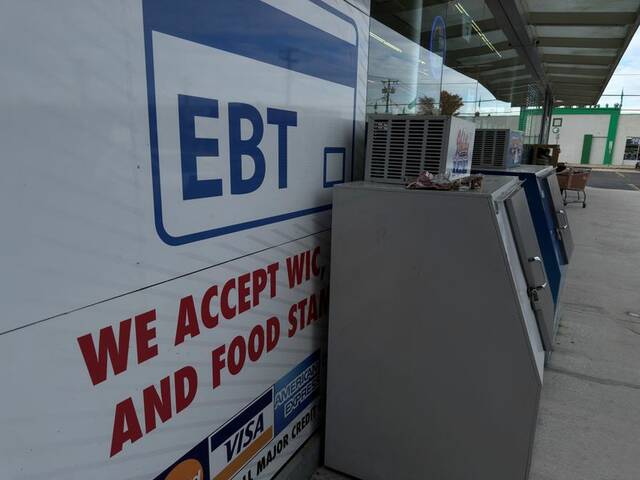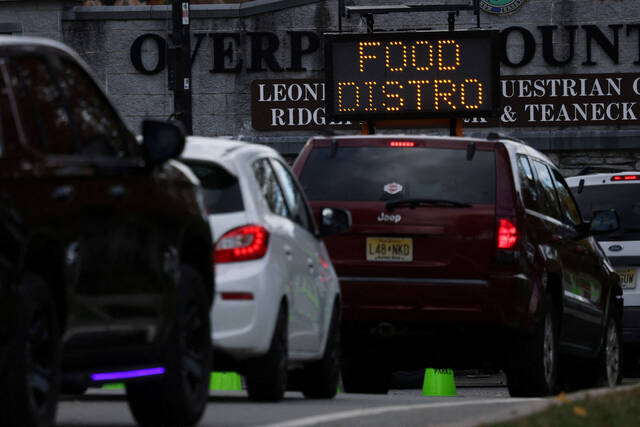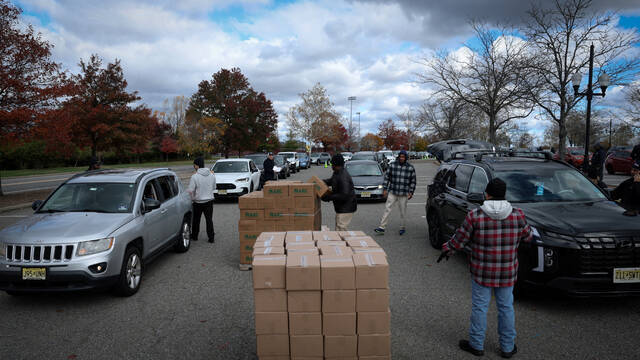BOSTON - The availability of food aid for 42 million low-income Americans this month remained in question on Monday as legal wrangling over the benefits continued even as lawmakers take steps toward ending the record-long federal government shutdown.
A series of legal victories and setbacks for nonprofits and Democratic-led states and cities fighting to restore food aid has sown confusion over the program’s status.
As the legal battles play out, the Senate was moving forward on a measure to end the longest-ever government shutdown, although any deal would need approval of the House and the president and could take days.
The Supplemental Nutrition Assistance Program, or SNAP, provides a monthly benefit to eligible Americans whose income is less than 130% of the federal poverty line. The maximum monthly benefit for the current fiscal year is $298 for a one-person household and $546 for a two-person household.
Late on Sunday, the Boston-based 1st U.S. Circuit Court of Appeals rejected a bid by the Trump administration to halt Thursday’s decision by a Rhode Island judge requiring the U.S. Department of Agriculture to spend $4 billion set aside for other purposes to fully fund SNAP benefits, often referred to as food stamps.
The ruling by the 1st Circuit will have no immediate impact because on Friday U.S. Supreme Court Justice Ketanji Brown Jackson put a temporary hold on the lower court order by U.S. District Judge John McConnell. Her temporary hold remains in place for 48 hours after the 1st Circuit decision.
The Trump administration told the U.S. Supreme Court on Monday that it continues to seek a halt of the Rhode Island judge’s order to fully fund the benefits unless there was an end to the government shutdown.
Trump administration appealed lower court decision
The first federal shutdown to include a halt in the 60-year-old SNAP program has prompted emergency action in several states and caused long lines at community food banks.
On Saturday, USDA directed states, which administer the benefits on a day-to-day basis, to “undo” any steps taken prior to Jackson’s order to issue full SNAP benefits or risk financial penalties.
On Monday, U.S. District Judge Indira Talwani in Boston temporarily blocked that directive at the behest of 25 Democratic-led states and the District of Columbia, which argue USDA cannot force them to undo actions they took pursuant to a court order and earlier guidance from the agency. Talwani scheduled a hearing for Monday afternoon.
The administration has argued that judges cannot force the USDA to find money beyond a contingency fund in the “metaphorical couch cushions” to pay for full SNAP benefits while the shutdown continues.
It blamed Congress for the crisis and said it was up to lawmakers to solve it.
“We do not take lightly the government’s concern that money used to fund November SNAP payments will be unavailable for other important nutrition assistance programs,” U.S. Circuit Judge Julie Rikelman wrote for the three-judge panel on the 1st Circuit Court of Appeals.
But Rikelman, who like the other judges was appointed by a Democratic president, wrote that a ruling for the administration would have led to “widespread harm” by “leaving tens of millions of Americans without food as winter approaches.”
The White House and USDA did not immediately respond to requests for comment on Monday.
The administration originally planned to suspend SNAP benefits altogether in November, citing a lack of funding because of the shutdown. They cost $8.5 billion to $9 billion per month.
But in a lawsuit by a group of cities, nonprofits, a union and a food retailer, McConnell ruled that the administration either was required to use emergency funding to partially fund SNAP once it resolved the “administrative and clerical burdens” of paying reduced benefits, or tap additional funding to fully pay out November’s SNAP benefits.















